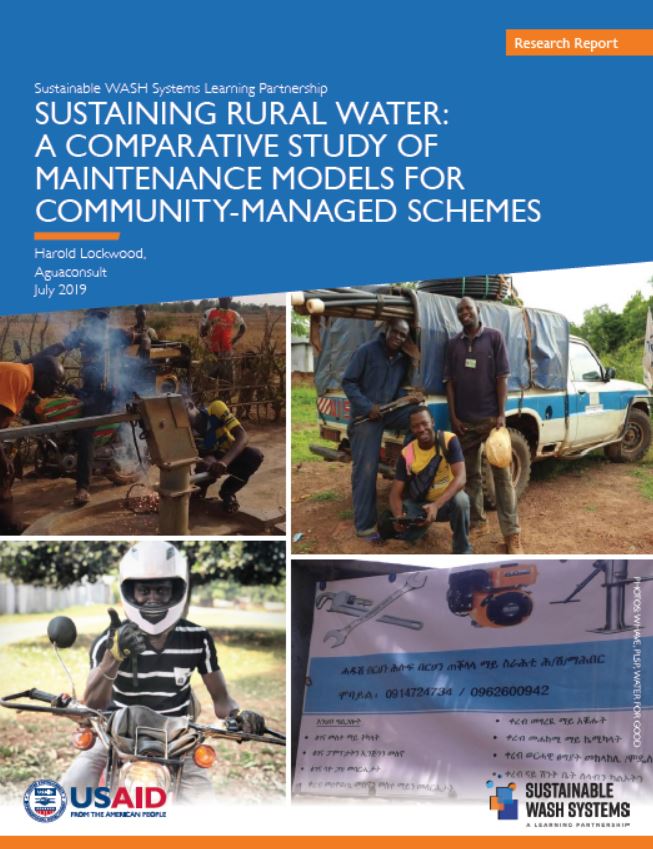Sustaining Rural Water: A Comparative Study of Maintenance Models for Community-Managed Schemes
 |
rapport Jul 2019 ; 90 pages
Aut. Harold Lockwood
Ed. IRC - Addis Ababa USAID - Washington
Téléchargeable sous format: PdF
Téléchargeable chez l'éditeur
Abstract:
As rural water supply coverage rates rise across many countries, attention is increasingly being paid to finding and implementing cost-effective mechanisms to ensure this improved initial access is sustained over time.
Conventional approaches to maintenance have largely been based on voluntary community-based management with communities taking on the burden of maintenance themselves, with limited, if any, support from external agencies or local government. Recently, there have been attempts to professionalize maintenance services and make these services affordable at the point of delivery.
This study considers different variations of maintenance approaches. It provides a typology for characterizing maintenance service provision models, a framework for analyzing them, and an in-depth study of seven maintenance models that represent different cases from the typology of approaches. Based on this comparative analysis, the study outlines emerging trends and recommendations for broader consideration.
Mots clefs: |
eau potable (CI) (DT) (OP) (ope) , gestion communautaire (CI) (DT) (OP) (ope) , mode de gestion/gouvernance (CI) (DT) (OP) (ope) , rural (CI) (DT) (OP) (ope) |
Pays concernés: |
Centrafrique (CI) (DT) (OP) , Ethiopie (CI) (DT) (OP) , Kenya (CI) (DT) (OP) , Ouganda (CI) (DT) (OP) |
Editeurs/Diffuseurs: |
|
IRC - Addis Ababa - Ethiopie |
USAID
-
US Agency for International Development - Washington - Etats Unis |
En cas de lien brisé, nous le mentionner à communication@pseau.org